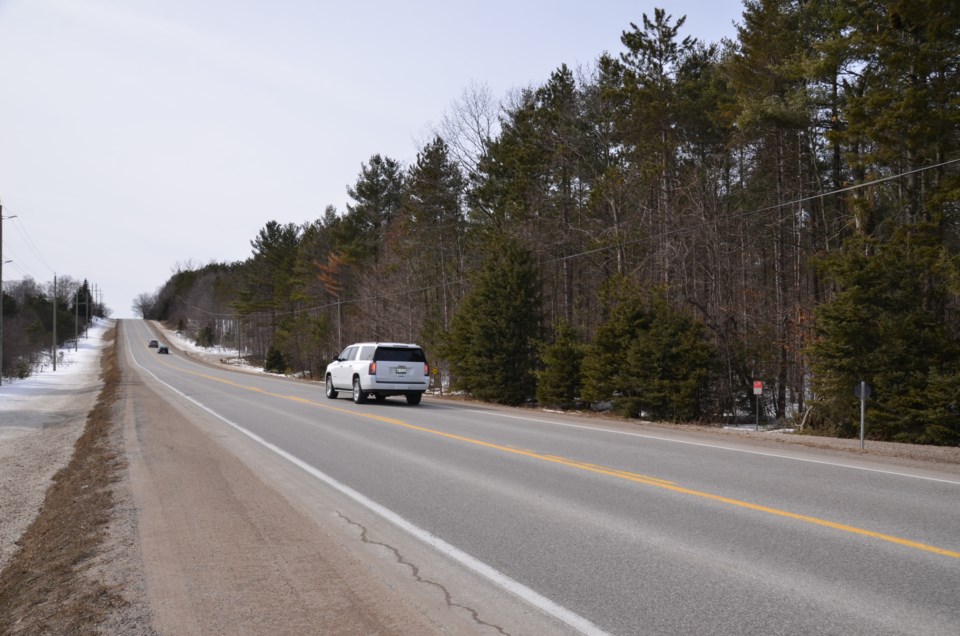Despite a full gallery of citizens attempting to stop its plans for an organics facility and transfer station, Simcoe County councilors voted overwhelmingly to stay on the path first laid out in the county’s waste management strategy in 2010.
Springwater Mayor Bill French and Deputy Mayor Don Allen, who rounded up residents opposing the plan to use a county forest site at 2976 Horseshoe Valley Road in Springwater, failed to convince their council colleagues, who met in committee of the whole Tuesday to discuss the recommendation released last week.
“We need to know what these facilities would cost and what the impact would be on Springwater. We can’t go on without knowing the costs. We need to address now the decline of diversion trends in Simcoe County so we can make sure there will be sufficient (input),” said Allen.
But county staff said the green-bin tonnage remains relatively consistent between 10,000 and 11,000 tonnes per year, although it’s not increasing as the number of new households grows. A garbage audit revealed a lot of organics was being thrown into the regular waste stream, which goes to landfill.
French attempted to cite the county’s natural heritage policies and the history of the site as reasons not to proceed, but those two were shot down.
“This is a county forest property purchased in the early 1940s. The county has more than 32,000 acres (of county forest). This is a 208-acre site and we need 11 acres of it,” said Debbie Korolnek, the engineering, planning and environment general manager.
Because of the site’s size, the facility will be able to be buffered and the nearest neighbours will be at least half a kilometre away.
Korolnek added the county also will replace not only the number of trees removed for the project, but boost the tree count by two to three times.
Further, she noted, the site requires zoning, Official Plan and site plan approvals, processes that require environmental impact examination and analysis.
“We’re absolutely committed to working with the local municipality to work through those concerns,” she said.
She also noted that knowing the site helps determine what technology will be used to process the organics, which also affects the final cost and business case.
Without knowing the site and its implications, getting an accurate business case and serious responses to an RFP are extremely difficult, she added.
Springwater officials repeatedly cited Surrey, British Columbia’s facility as an example to follow.
Korolnek pointed out Surrey had a site, which impacted technology.
“York Region has gone out three times for this type of facility without (knowing) a site. Because there isn’t a site, there’s too much risk and costs were astronomical. They cancelled all three (times). Now they don’t get the legitimate bidders,” she said, adding serious contenders can invest $500,000 in creating a viable bid.
“We want to do it this way because there is more certainty in the business case.”
The decision is still subject to council approval March 22. A meeting with neighbouring landowners is scheduled for March 23.



